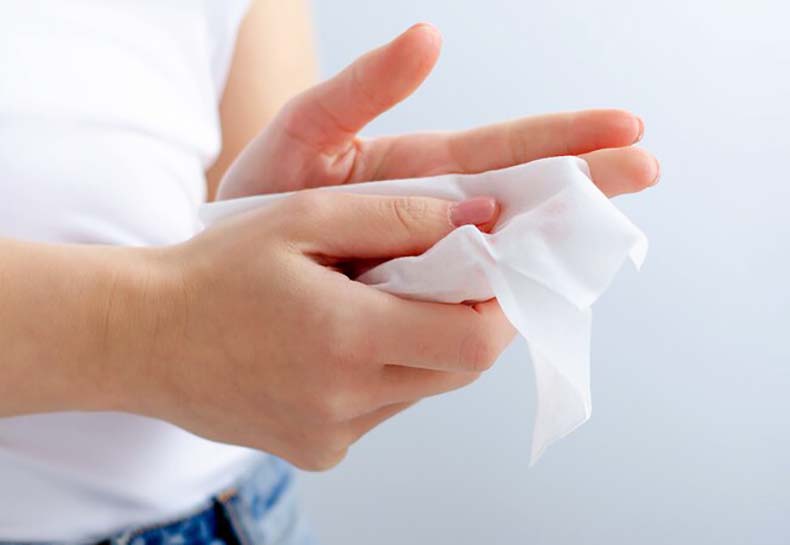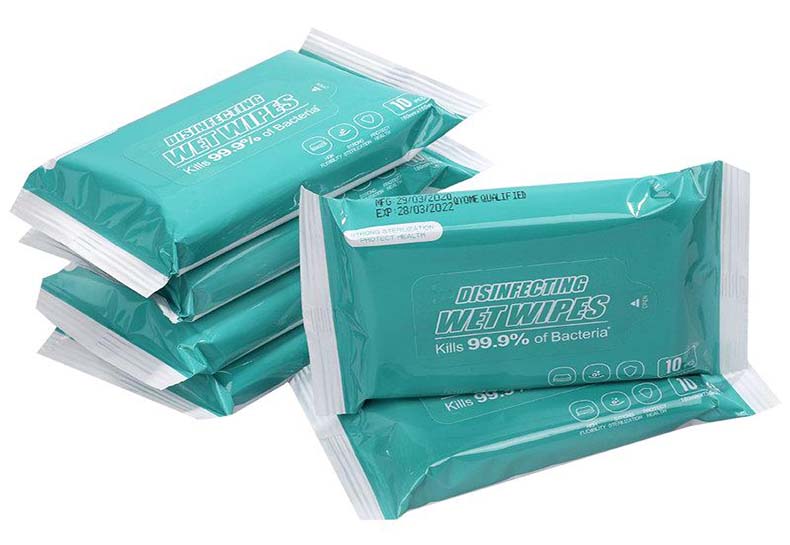Disinfecting Wipes VS Antibacterial Wipes
Many people don't know the difference between antibacterial wipes and disinfectant wipes. This is an important distinction because the use of wipes, gels, and hand washers has exploded in recent years. Both the U.S. Environmental Protection Agency(EPA) and the Centers for Disease Control recommend using these products to control the spread of the virus and reduce bacterial infection rates. But it's important to know the difference.
In general, antibacterial wipes are used for hand sterilization to prevent the spread of bacteria. Hand sanitizers also kill these germs, but they don't remove food, dirt, and grime. Gels still have their place because these vials can be placed anywhere, and they are a very cost-effective way to control the spread of disease. Today, the prevalence of nut allergies requires schools to use antibacterial wipes after meals and snacks. Preferably, use "harmless" wipes that contain hand protection oil.
What are disinfecting wipes, definitely?
Simply put, this is a disposable paper towel that is pre-soaked in a solution containing disinfecting ingredients such as quaternary ammonium salt, hydrogen peroxide, and sodium hypochlorite. Whether antiseptic wipes are ultimately more effective than antiseptic sprays (which contain some of the same common ingredients) and paper towels haven't been studied, but Dr. Schaffner noted that antiseptic wipes may be as effective as antiseptic sprays at fighting off viruses.
The big difference here is that disinfectant wipes (and sprays!) Use only on hard surfaces, such as counters and door handles, not on the skin or food (more on that later). So remember, according to THE EPA, if a product (wipe or otherwise) wants to call itself a disinfectant, it must be able to kill viruses and bacteria.
But does that include coronaviruses? While it seems likely, Schaffner said, the answer remains to be determined. Currently, there are nearly 400 products on EPA's list of registered disinfectants used against novel Coronavirus, some of which are actually antiseptic wipes. There is a problem here: "[most] of these products have not been tested with novel CoronavirusSARS-COV-2, but they are considered effective due to their activity against the relevant virus," Schaffner explains.

antibacterial wipes to secure your hand
What about antibacterial wipes?
In general, wipe hard surfaces with a disinfectant and clean the skin with antibacterial wipes (such as wipes). Common active ingredients include benzalkonium chloride, benzalkonium chloride, and alcohol. Schaffner explains that antibacterial wipes, antibacterial soaps, and hand sanitizers are all regulated by the FOOD and Drug Administration because they are classified as drugs. Like the EPA, the FDA wants to make sure the product is safe and effective before allowing it on the market.
COVID - 19? So whether antibacterial wipes or antibacterial hand sanitizers are effective against coronavirus is debatable. "A product that claims to be anti-bacterial simply means it has been tested for bacteria. It may or may not work against viruses, "Schaffner said.
Remember, the single biggest risk you have of getting COVID-19 is personal contact with an infected person, "Schaffner said. That's why, unless you have a confirmed or suspected coronavirus in your home, maintaining social distance and good personal hygiene (washing your hands, not touching your face, wearing a mask in public) are more important than what you wipe the counter with.





